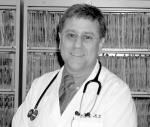Source: The Revolution A Manifesto
 Ron Paul
Ron Paul
 Pgs 89-91
Pgs 89-91
 Even now, though, it is possible for physicians to operate outside this crazy system if they make a special effort to do so. Several years ago I had a chance to meet Dr. Robert Berry, who had come to Washington to offer testimony before the congressional Joint Economic Committee, of which I am a member. Dr. Berry had opened a low-cost clinic in rural Tennessee. The clinic does not accept insurance, Medicare or Medicaid, a policy that allows Dr. Berry to treat patients without interference from third-party government bureaucrats or HMO administrators. He and his patients can therefore decide for themselves on appropriate treatments.
Even now, though, it is possible for physicians to operate outside this crazy system if they make a special effort to do so. Several years ago I had a chance to meet Dr. Robert Berry, who had come to Washington to offer testimony before the congressional Joint Economic Committee, of which I am a member. Dr. Berry had opened a low-cost clinic in rural Tennessee. The clinic does not accept insurance, Medicare or Medicaid, a policy that allows Dr. Berry to treat patients without interference from third-party government bureaucrats or HMO administrators. He and his patients can therefore decide for themselves on appropriate treatments.
 In other words, Dr. Berry practices medicine as most doctors did 40 years ago, when patients paid cash for ordinary services and had inexpensive catastrophic insurance for serious injuries or illnesses.
In other words, Dr. Berry practices medicine as most doctors did 40 years ago, when patients paid cash for ordinary services and had inexpensive catastrophic insurance for serious injuries or illnesses.
 Doing so affords him additional advantages as well. Freed from the bureaucracies of HMOs or government, he can focus on medicine rather than billing. By operating on a cash basis he lowers his overhead considerably, thereby making it possible to charge much lower prices than other doctors. He often charges just $35 dollars for routine maladies—only slightly more than the insurance co-pay that other offices charge. His affordable prices enable low-income patients to see him before minor problems become serious, and unlike most doctors, Dr. Berry sees patients the same day on a walk-in basis.
Doing so affords him additional advantages as well. Freed from the bureaucracies of HMOs or government, he can focus on medicine rather than billing. By operating on a cash basis he lowers his overhead considerably, thereby making it possible to charge much lower prices than other doctors. He often charges just $35 dollars for routine maladies—only slightly more than the insurance co-pay that other offices charge. His affordable prices enable low-income patients to see him before minor problems become serious, and unlike most doctors, Dr. Berry sees patients the same day on a walk-in basis.
 His patients are largely low-income working people who cannot afford health insurance but don’t necessarily qualify for state assistance. Some of his uninsured patients have been forced to visit hospital emergency rooms for nonemergency treatment because no doctor would see them. Others disliked the long waits and inferior treatment they endured at government clinics.
His patients are largely low-income working people who cannot afford health insurance but don’t necessarily qualify for state assistance. Some of his uninsured patients have been forced to visit hospital emergency rooms for nonemergency treatment because no doctor would see them. Others disliked the long waits and inferior treatment they endured at government clinics.



